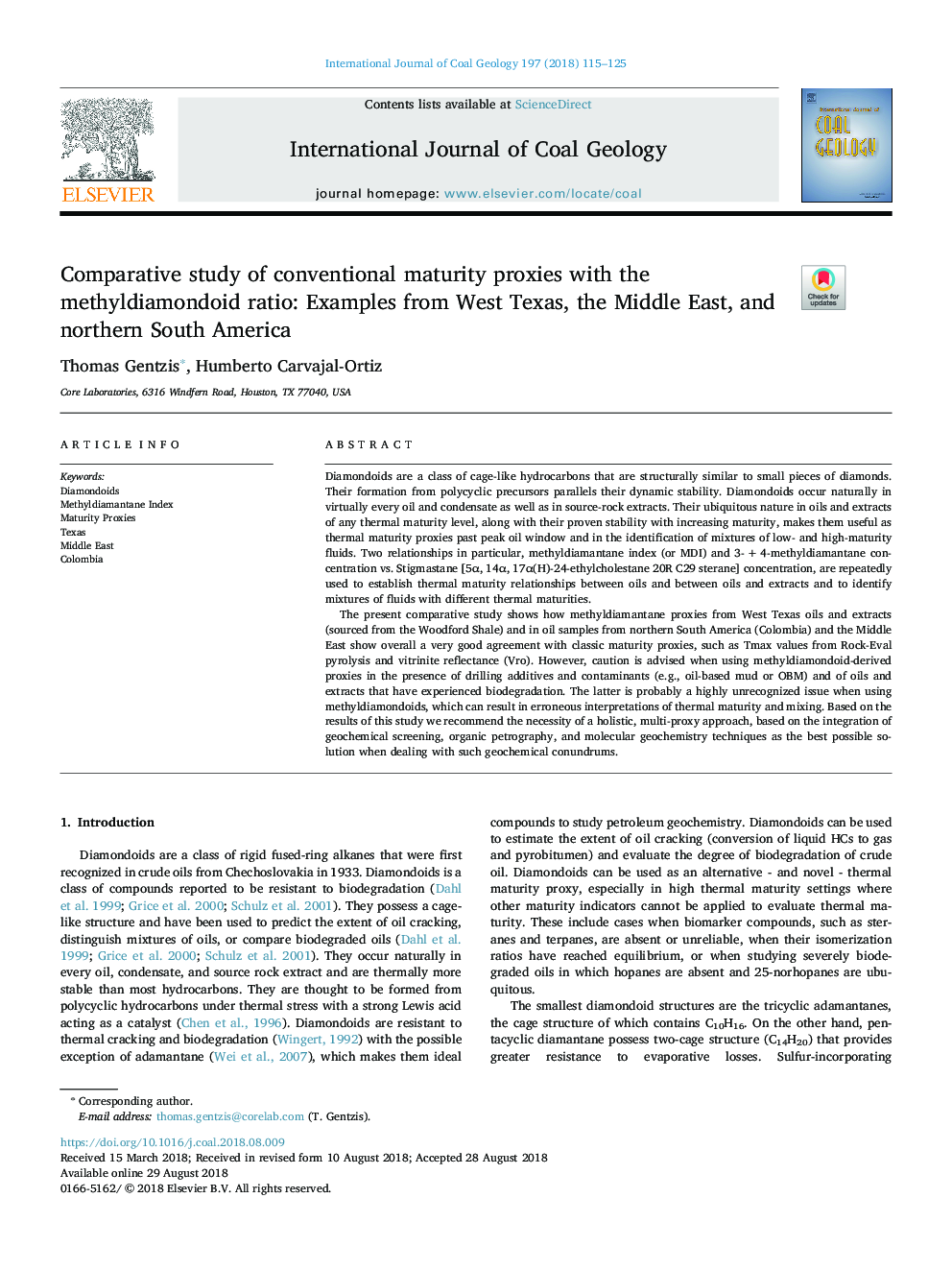| Article ID | Journal | Published Year | Pages | File Type |
|---|---|---|---|---|
| 9953649 | International Journal of Coal Geology | 2018 | 11 Pages |
Abstract
The present comparative study shows how methyldiamantane proxies from West Texas oils and extracts (sourced from the Woodford Shale) and in oil samples from northern South America (Colombia) and the Middle East show overall a very good agreement with classic maturity proxies, such as Tmax values from Rock-Eval pyrolysis and vitrinite reflectance (Vro). However, caution is advised when using methyldiamondoid-derived proxies in the presence of drilling additives and contaminants (e.g., oil-based mud or OBM) and of oils and extracts that have experienced biodegradation. The latter is probably a highly unrecognized issue when using methyldiamondoids, which can result in erroneous interpretations of thermal maturity and mixing. Based on the results of this study we recommend the necessity of a holistic, multi-proxy approach, based on the integration of geochemical screening, organic petrography, and molecular geochemistry techniques as the best possible solution when dealing with such geochemical conundrums.
Keywords
Related Topics
Physical Sciences and Engineering
Earth and Planetary Sciences
Economic Geology
Authors
Thomas Gentzis, Humberto Carvajal-Ortiz,
